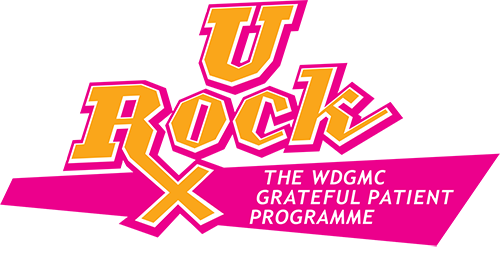Breast Cancer
Adapted from an interview with
Dr Owen Nosworthy
Breast cancer is a disease which begins in the breast tissue. As breast cancer often presents with a lump in the breast, it is important that every woman should be familiar with her breasts.
Who is most at risk for developing breast cancer?
Women are most at risk for developing breast cancer. Men can get breast cancer but the risk is significantly lower. The average woman over the age of 35 has a 13-15% chance of developing breast cancer within her lifetime. In other words 13-15 out of every 100 women over the age of 35 may develop breast cancer.
It is important for all women (and men) to know their own family history of breast cancer in order to be able to adequately assess their own risk of the disease. A family history of a close relative such as a mother or sister having breast cancer will double a woman’s risk of developing breast cancer. Furthermore, having two or more close relatives with breast cancer will triple a woman’s risk of developing breast cancer. The risk for breast cancer is not linked in the same way if the direct family member had another form of cancer such as colon, prostate or lung cancer. However, a family history of ovarian cancer has been associated with a higher risk of breast cancer.
Women who have been taking hormone replacement therapy longer than 5 years, women who have never had children or who had their first child late in life (after the age of 40), are also at higher risk of developing breast cancer, as is a confirmed genetic risk factor like the BRCA (breast cancer) mutation in the family. The mutated gene associated with breast cancer is not common. It only occurs in 5% of people who have been diagnosed with breast cancer.
There are a number of specific genetic abnormalities which are associated with breast cancer. Each of these confers its own independent risk of developing breast cancer. The risk of developing breast cancer is higher in women whose direct family member had a genetic abnormality (i.e. mutated gene). If there is a proven genetic abnormality in the family history, then a woman can be tested to see if she carries the same genetic risk factor.
The treatment of genetic breast cancer when compared to the treatment of breast cancer associated with lifestyle or environmental causes is the same. However, in proven cases of genetic breast cancer, the patient may be advised to remove their unaffected breasts to reduce future risk. The vast majority of breast cancer cases, however, are not associated with any of the known genetic abnormalities.
Types and stages of breast cancer
There are a number of different types of breast cancer. Each woman presenting with breast cancer needs to be assessed individually to look at all the possible characteristics of the cancer, which may make it less or more aggressive.
There are four stages of cancer:
- Stage 1 cancer means the cancer is extremely small with no evidence of spreading to the lymph nodes.
- Stage 2 cancer means that the tumour is extremely small but there is already spread of the cancer into the lymph nodes.
- Stage 3 cancer means that the tumour is large and/or there is more extensive spread into the lymph nodes but no evidence of further spread.
- Stage 4 cancer means that the cancer has spread further into the body such as the lungs, liver or bones. Stage 4 cancer is incurable.
Symptoms of breast cancer
Most commonly, breast cancer presents with a lump in the breast. It can often be a silent disease with no pain and can thus be missed until the lump is large. Self-examination is extremely important in the early detection of any suspicious breast lumps. Any lump, redness, or nipple discharge should always be brought to the attention of the doctor.
Prevention
A healthy balanced diet is extremely important for all health needs whether cancer- related or heart-related. Exercise is also extremely important. A sedentary lifestyle increases the risk of developing any cancer. Other tips when it comes to breast cancer include the following:
- Avoid smoking and excessive intake of alcohol
- Know your family history of breast cancer
- Perform regular self-examination of the breasts
- Have regular screening tests such as mammograms starting at age 40.
Survival rate of breast cancer
Breast cancer survival rates depend on the stage of the cancer when diagnosed, as well as many other individual factors. Survival rates are good, provided treatment is initiated when the cancer is found.
It is important to emphasise to someone who is going through or recovering from breast cancer, that they are not alone and that there are many support mechanisms to assist them through this difficult time.

